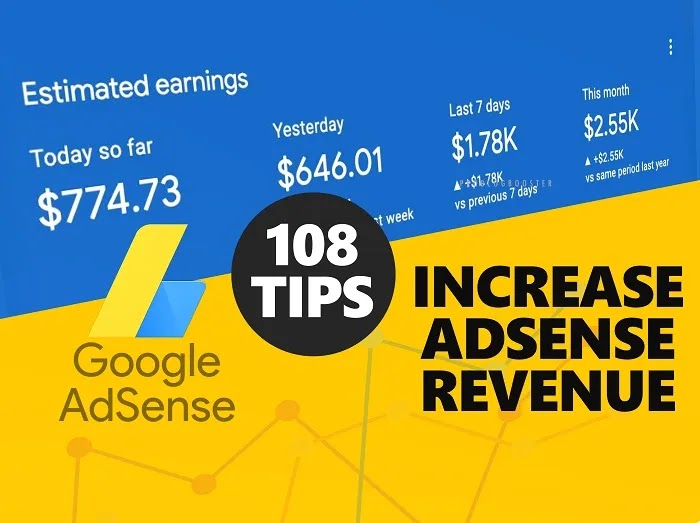WhatsApp offers features to enhance privacy, manage notifications, and improve communication, such as setting disappearing messages, muting group chats, and creating chat shortcuts. You can customize the app with custom chat wallpapers, bold or italicize messages, and even use a disappearing message feature for photos and videos. For convenience, you can pin important chats, reply to specific messages, and listen to voice messages before sending them. Check the most useful WhatsApp tips and tricks, such as how to screen share on WhatsApp. Listed coolest tips to help you get the most out of WhatsApp, from enhancing your app security and privacy to new customization features.
B2C Business Models: Strategies for Consumer Engagement
We’re talking about B2C here. It just means Business-to-Consumer. It’s any company selling to regular people. The chai stall on the corner, the clothing stores on Mahadwar Road, your mobile provider—it's all B2C. It’s the world we shop in every single day.
But let's be real. We all have our favorites. Why?
It’s not always the product. It’s the connection. That connection is called consumer engagement. It’s the reason you’ll walk past three other places to get to your spot. They know your order, their app is super easy to use, or you just like their vibe.
In today's time, that vibe is more important than ever. Just having a good product is the bare minimum. Businesses have to work hard to build that trust and make you feel seen.
So how do they do it? This post is all about those ideas. We're looking at the simple, smart ways the best B2C companies build a loyal following and keep you coming back.

Introduction to B2C Business Models
These days, companies wish to reach out to customers directly. When a firm sells goods or services directly to consumers, it is referred to as a Business-to-Consumer or B2C strategy. This is contrasting with Business-to-Business (B2B), where firms sell to businesses.Most famous brands, such as Amazon, Netflix, and Nike employ B2C strategies to target common buyers. The success of B2C companies relies heavily on how well they can connect with their customers and bring them back.
Consumer connection involves getting customers interested, satisfied, and loyal to the brand. There are various types of B2C business models, and each employs unique strategies to win over and retain customers.
A typical B2C model is the online shop. These shops sell goods directly to customers via websites or apps. For instance, Amazon enables the consumer to purchase nearly anything from apparel to devices with a few clicks.
Subscription services are another prevalent model where the consumer pays periodically to avail themselves of goods or services. Netflix is an example where consumers pay on a monthly basis to stream movies and television shows online.
Building a Strong Brand and Customer Experience
Most B2C companies try to build a solid brand image.Good brands use marketing and advertising to tell a story that resonates with customers on an emotional level. Nike is not merely selling shoes; it sells inspiration and the winning experience. Through this emotional relationship, customers use their products over others.
In order to get customers well-engaged, B2C businesses apply numerous tactics. One of them is providing an excellent customer experience. This involves keeping things easy and pleasant for customers to buy, whether online or on the high street.
For instance, a website needs to be easy to navigate, load quickly, and be accessible by phone. Customer service is critical as well. Customers expect prompt solutions to their issues and assistance in case something goes wrong. If customers are treated with respect and support, they become more inclined to remain loyal.
Personalization and Social Media Engagement
The second most important strategy is personalization. This refers to the showing of customers’ products and offers that are similar to their interests and needs. Most websites apply data to know what a customer likes according to what he has done before. If you keep purchasing sportswear, for instance, a web store may present you with the latest running shoes or exercise clothes.Personalization is quicker and more enjoyable to shop in, which encourages one to buy. Social media is very influential in B2C interaction. Social media platforms such as Facebook, Instagram, TikTok, and Twitter enable businesses to directly communicate with customers.
Businesses post updates, videos, and stories portraying their products and brand personality. They also apply social media adverts to get more exposure. Social media makes customers feel close because they can leave comments, share, and provide feedback.
Various companies also collaborate with influencers—individuals who have a large following online. When an influencer endorses a product, her or his fans believe in that suggestion and would likely use it.
Sales Promotions and Content Marketing
Sales promotions are also a favourite method of drawing customers. Discounts, coupons, promotional offers, and no-cost shipping appeal to individuals to purchase now and not later. Yet the business needs to weigh sales promotions against the preservation of the brand's value. If prices are consistently reduced, customers perceive the products as cheap or not worth the full price.Rather than purely selling, businesses produce blogs, videos, or guides that educate customers about a subject.
For instance, a business that sells kitchen appliances may post recipes and cooking advice. This makes the customer trust the business and feel that they care about them and not simply about profit.
Content marketing also improves search engine rankings, making it easier for people to find the business online.
Technology in B2C Interactions
Technology is a large part of how B2C businesses interact with customers. Customer relationship management (CRM) software is used by many businesses to manage customer data and communication.Artificial intelligence (AI) is also prevalent, where chatbots respond to queries immediately on websites and applications. These devices enhance the customer experience through quick and beneficial responses.
Mobile shopping is extremely common in B2C models. Customers browse and purchase products anywhere and at any time using their smartphones. Easy checkout, saved payment information, and quick load pages help minimize the dropout of customers without purchase. Mobile apps also have the ability to notify customers about new products, promotions, or special occasions and keep them engaged.
Building Trust and Loyalty
Trusting relationships are quite significant in B2C business models. The customers desire to have assurance that a company can be trusted and is concerned about satisfying them. Companies are able to establish trust by providing transparent return policies, secure payment options, and genuine product descriptions.Customer testimonials and positive reviews also give new consumers confidence. Customers trust a brand and are therefore likely to refer their friends and family to it, thus expanding the business.
Loyalty programs are an excellent method of ensuring customer repeat business. Loyalty programs reward customers for buying the same product repeatedly by offering points, discounts, or special deals. For instance, a coffee house may offer a free beverage after purchasing ten cups. Loyalty programs make customers feel valued and motivate them to use the same brand repeatedly over other brands.
Social Responsibility and Sustainability
In the past few years, social responsibility and sustainability have mattered to consumers.B2C businesses that demonstrate concern for society and the environment get customers who are similarly concerned.
For instance, companies that produce environmentally friendly products, minimize waste, or engage in community initiatives tend to be followed by loyal customers. Honesty and openness regarding such initiatives matter because customers wish to believe that the business is acting as promised.
In short: Strategies for B2C Success
Finally, business models for B2C aim to sell directly to end consumers. Companies need to apply intelligent strategies in order to acquire customers in order to succeed. Some of the strategies include offering a wonderful shopping experience, personalization, social media usage, promotion offerings, and content creation.Trust, loyalty, and caring about the environment also assist in building tight customer relationships. As technology and customer expectations evolve further, B2C enterprises need to keep evolving in order to remain successful.
Identifying and implementing these tactics will enable any business to develop a happy & loyal customer base.
Bottom Line
So, the lesson is simple. B2C success isn't just about what you sell; it’s about how you sell it and the smartest businesses know this. They focus on creating a great experience, building a community, and making every customer feel valued. It’s a shift from one-time sales to long-term relationships. That genuine connection is the ultimate strategy for keeping customers happy and coming back for more.Now, I want to hear from you! Which local business in your city is an expert at engaging with you? Let's give them some appreciation! Shout out your favorite in the comments below.




